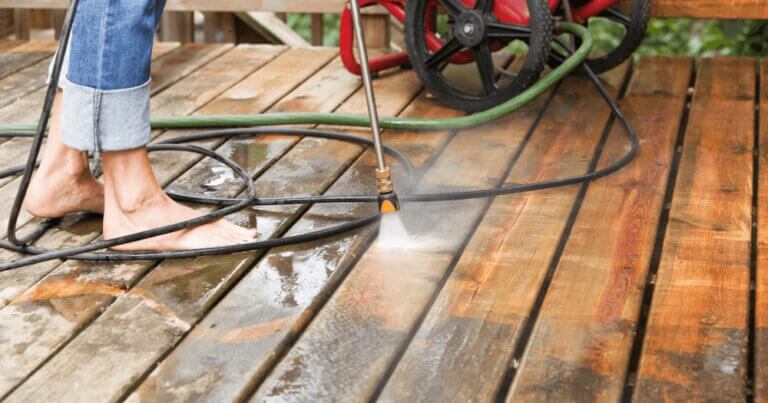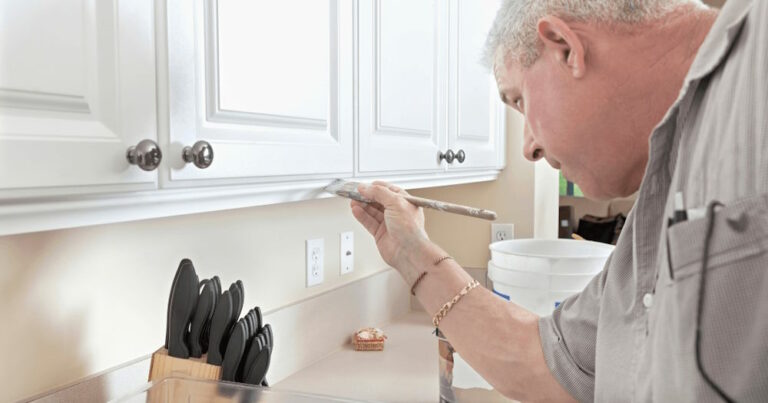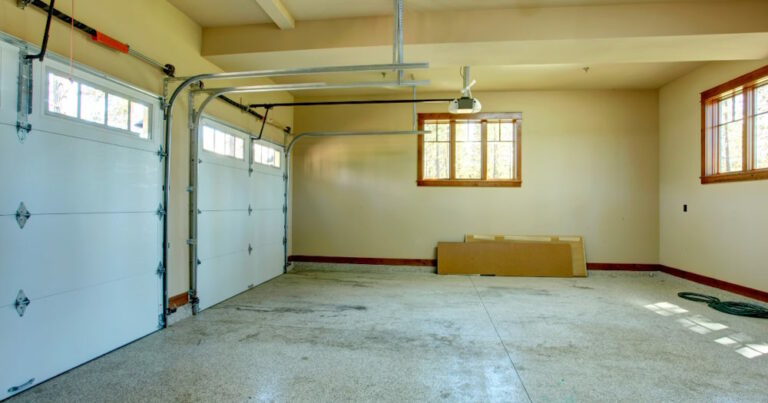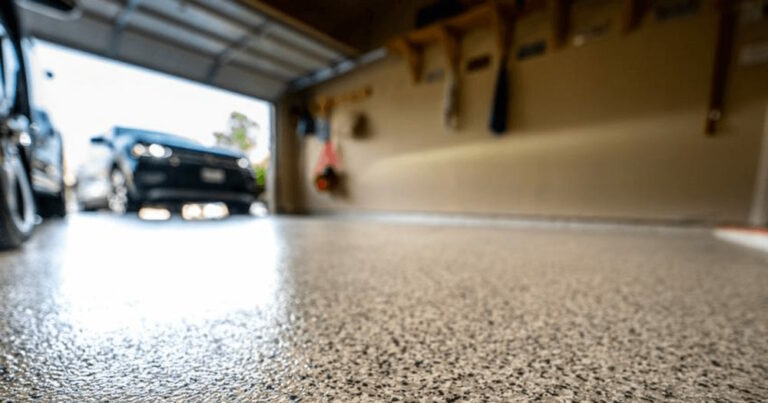If you’re in the market for a new flooring solution, you may be overwhelmed by the variety of options available. From tiles to hardwood to carpet, each option has its unique advantages and disadvantages. However, when it comes to durability, visual appeal, and cost-effectiveness, epoxy floors stand out as the best choice for both residential and commercial spaces.
Epoxy floors are composed of a combination of epoxy resin and a hardening agent, creating a strong and seamless surface that can withstand heavy foot traffic, harsh chemicals, and daily wear and tear. In addition to their strength, epoxy floors are also visually stunning, with a high-gloss finish that can be customized with a range of colors and decorative elements.
But the benefits of epoxy floors don’t stop there. They’re also incredibly easy to maintain, requiring only regular sweeping and damp mopping to keep them looking their best. And because they’re resistant to mold and mildew, they can contribute to a healthier indoor environment, especially in damp or humid areas.
Key Takeaways
- Epoxy floors are durable, visually appealing, and cost-effective.
- They’re composed of epoxy resin and a hardening agent, creating a strong and seamless surface.
- Epoxy floor coating is easy to maintain and resistant to mold and mildew.
- They can contribute to a healthier indoor environment.
- Epoxy floors can be customized with a range of colors and decorative elements.
What is an Epoxy Floor?
An epoxy floor is a type of resinous flooring system composed of epoxy resin and a hardening agent. The two components are mixed together in a specific ratio and applied to a prepared surface. The resulting chemical reaction creates a durable and seamless surface that can last for many years.
Epoxy floor coating is known for their high-gloss finish, which can enhance the look of any space. They come in a range of colors and finishes, from plain solid colors to metallic pigments or flakes. The options for customization are endless, making epoxy floors a popular choice for both residential and commercial settings.
The Composition of Epoxy Floors
Epoxy floors are typically made up of two main components: epoxy resin and a hardening agent. The resin is a clear, viscous liquid that is mixed with the hardener to create a chemical reaction. This reaction causes the mixture to harden and form a solid surface.
The composition of epoxy paint can vary depending on the manufacturer and intended use. Some may include additives such as aggregate to provide additional strength or slip resistance, while others may incorporate UV-resistant materials to prevent discoloration over time.
The Application Process of Epoxy Floors

The application process for epoxy coatings involves several steps to ensure a smooth and long-lasting finish. The first step is surface preparation, which involves cleaning and preparing the existing surface to ensure proper adhesion of the epoxy. This may include removing any existing coatings, repairing cracks or defects, and ensuring the surface is completely clean and dry.
Once the surface is ready, the epoxy mixture is applied using various techniques such as rolling, brushing, or spraying. Multiple coats may be necessary to achieve the desired thickness and finish. The final step involves allowing the epoxy to cure, which can take several days depending on the temperature and humidity of the environment.
The Benefits of Epoxy Floors
There are numerous benefits to investing in an epoxy floor. Perhaps the most significant advantage is their exceptional durability. Epoxy floors are known to be incredibly tough and resilient, making them suitable for high-traffic areas and heavy machinery.
Another benefit of epoxy floors is their resistance to stains and chemicals. They are easy to clean and maintain, making them a popular choice for commercial kitchens, industrial facilities, and healthcare environments. Additionally, epoxy floors can improve indoor air quality by preventing the growth of mold and bacteria, which can be harmful to human health.
Epoxy floors can also enhance the aesthetic appeal of any space. With a wide range of colors and finishes available, epoxy floors can transform the look and feel of a room. They are also customizable, allowing for the addition of decorative elements like metallic pigments or flakes.
The Benefits of Epoxy Floors
Epoxy floors are an excellent flooring solution for both residential and commercial spaces due to their many benefits. Here are some of the key advantages of investing in an epoxy floor.
Durability
One of the primary benefits of epoxy floors is their exceptional durability. Epoxy floors are composed of multiple layers of resin that create a hard and resilient surface. They can withstand heavy foot traffic, impacts, and even chemical spills without showing signs of wear and tear. This makes them an ideal choice for high-traffic areas like garage floors, warehouses, and commercial kitchens.
Resistance to stains and chemicals
Epoxy floors are also highly resistant to stains and chemicals, making them easy to clean and maintain. Unlike other flooring options, they do not absorb spills or stains, which can lead to permanent damage. They also resist damage from harsh chemicals, such as oil and grease, which are commonly found in garage floor and industrial settings.
Ease of maintenance
Epoxy floors are incredibly easy to maintain, requiring only routine cleaning with a mild detergent and water. They do not require waxing or any special treatments to maintain their shine and durability. This makes them a cost-effective flooring solution in the long run.
Long lifespan
Epoxy floors have a long lifespan, often lasting up to 20 years or more. This makes them an excellent investment for both homeowners and businesses, as they require minimal maintenance and replacement over time.
Improved indoor air quality
Epoxy floors can also contribute to improved indoor air quality by preventing the growth of mold and mildew. Unlike carpet or hardwood floors, epoxy floors do not absorb moisture, which can lead to the growth of harmful bacteria and fungi. This is especially important for individuals who suffer from allergies or respiratory issues.
Enhancing Aesthetics with Epoxy Floors
Epoxy floors are not only durable and easy to maintain, but they also offer a wide range of customization options to enhance the aesthetic appeal of any space. With epoxy floors, you can transform dull and boring concrete floors into a stunning work of art.
Color and Finish Options
One of the most significant advantages of epoxy floors is the wide range of colors and finishes available. From solid colors to metallic hues and even customized patterns or designs, there is an epoxy floor option for every style and preference. Epoxy floors can also be finished with a high-gloss shine, which adds to the visual appeal of any space.
Metallic Pigments and Flakes
Metallic pigments and flakes can be added to the epoxy coating to create a unique, one-of-a-kind look. These pigments and flakes create an almost 3D effect that adds depth and interest to the floor. Metallic pigments are available in a variety of colors and can be combined to create a custom look that complements your space.
Decorative Elements
Epoxy floors can also incorporate decorative elements such as logos, patterns, or designs. These elements can be added to create a personalized touch in your home or business. The possibilities are endless, and epoxy floors allow you to create a space that truly reflects your personality and style.
Epoxy Floors for Residential Spaces
If you’re considering a flooring upgrade for your home, epoxy floors could be the solution you’ve been searching for. Epoxy floors are a popular choice for residential spaces due to their durability, easy maintenance, and customization options.
Rooms Where Epoxy Floors Work Best
Epoxy floors can be used in a variety of rooms within your home. One of the most common areas to install epoxy flooring is in the garage. An epoxy garage floor provides a non-slip surface and is resistant to staining from oil and other fluids on your garage floor paint. Additionally, epoxy floors are a popular option for basement floor where moisture levels are high. They can also be installed in kitchens, bathrooms, and even living spaces.
Durability and Customization
One of the most significant benefits of epoxy floors is their extreme durability. Epoxy floors are highly resistant to stains, chemicals, and wear and tear from foot traffic. Unlike other flooring options that can require repairs or replacement after a few years, epoxy floors can last for decades with proper maintenance.
Another benefit of epoxy floors is the ability to customize the look and feel of your flooring. Epoxy floors are available in a wide range of colors and finishes, including metallic pigments and flakes, which can add a unique touch to any room. You can also choose to incorporate logos, patterns, or graphics into the epoxy floor for a personalized touch.
Increasing Property Value
Installing epoxy floors in your home can increase its value and appeal to potential buyers. Epoxy floors are a cost-effective flooring solution, and because of their durability, they require less maintenance than other types of flooring. This means that potential buyers won’t have to worry about replacing the flooring in the near future, making your home more attractive to them.
Epoxy Floors for Commercial Spaces
Commercial spaces require durable and safe flooring solutions that can withstand high traffic and promote cleanliness. Epoxy floors are an ideal choice for such spaces, as they offer exceptional durability, customization options, and long-lasting performance.
Epoxy floors can be used in a variety of commercial settings, including retail stores, restaurants, warehouses, and automotive facilities. They are highly customizable and can be designed to match the aesthetic of any space. This makes them a popular choice for businesses that want to create a professional and visually appealing environment.
One of the key advantages of epoxy floors in commercial spaces is their ability to enhance safety. These floors are slip-resistant and can be designed with demarcation lines that indicate designated areas for different activities. This is particularly beneficial for facilities that require strict adherence to safety regulations.
| Advantages of Epoxy Floors for Commercial Spaces | Disadvantages of Other Flooring Options |
| Epoxy floors are highly durable, withstanding heavy loads and high traffic with ease. | Carpet and vinyl floors are prone to wear and tear, leading to frequent replacement and renovation costs. |
| Epoxy floors are easy to clean and maintain, ensuring a hygienic environment for customers and employees. | Tile floors can be difficult to clean and maintain, with grout lines being a magnet for dirt and bacteria. |
| Epoxy floors are cost-effective, with a long lifespan that minimizes replacement costs. | Hardwood floors require frequent refinishing and maintenance, leading to higher costs in the long run. |
Finally, epoxy floors can be installed quickly and efficiently, minimizing disruption to business operations. They require minimal downtime for curing and can be customized to suit any design or branding requirements.
Overall, epoxy floors are an excellent choice for commercial spaces that require durability, safety, and visual appeal. They offer a wide range of benefits that make them a cost-effective and practical flooring solution for businesses of all types and sizes.
The Installation Process of Epoxy Floors
If you’re considering investing in an epoxy floor, it’s important to understand the installation process. Although it’s possible to do it yourself, it’s usually recommended to have a professional handle the task to ensure a flawless and long-lasting result.
The installation process typically involves several steps:
| Step | Description |
| Surface Prep | The surface must be cleaned and prepped before the epoxy can be applied. This involves removing all dirt, debris, and existing coatings. |
| Primer Application | A primer is applied to the surface to ensure proper adhesion between the epoxy and the substrate. |
| Epoxy Application | The epoxy is mixed and applied to the surface using specialized tools and techniques to achieve a consistent and uniform finish. |
| Flake or Metallic Application (optional) | If desired, decorative flakes or metallic pigments can be added to the epoxy to enhance the aesthetics of the floor. |
| Topcoat Application | A topcoat is applied to the surface to provide additional protection against wear and tear, UV rays, and chemical spills. |
| Curing Time | The epoxy must cure for a specified period of time before it’s ready for use. This can range from several hours to several days depending on the product and environmental conditions. |
It’s important to note that the quality of installation can affect the final result, so it’s crucial to select a reputable and experienced installer. With proper installation, an epoxy floor can provide a seamless, durable, and aesthetically pleasing surface for years to come.
Maintaining and Cleaning Epoxy Floors
Proper maintenance and cleaning are essential to ensure the longevity and visual appeal of epoxy floors. Here are some tips to keep your epoxy floors looking their best:
- Regular sweeping or dust mopping to remove debris and dirt particles.
- Damp mopping with a mild soap solution or an approved cleaner to remove stains and spills.
- Avoid using harsh chemicals, acidic substances, or abrasive cleaning agents that can damage the epoxy surface.
- Place floor mats or rugs at entryways to reduce the amount of dirt entering the space.
- Use furniture coasters or felt pads to prevent scratches and marks from heavy objects.
By following these basic guidelines, you can keep your epoxy floor in top condition for years to come.
Dealing with Spills
While epoxy floors are resistant to stains, spills should be addressed promptly to prevent damage. Here are some tips for dealing with common spills:
| Type of spill | Recommended cleaning solution |
| Oil or grease | Warm water and dish soap |
| Chemicals | Warm water and vinegar |
| Wine or juice | Warm water and baking soda |
For tougher stains, use a soft-bristled brush to scrub the affected area gently.
Avoiding Scratches
Epoxy floors are highly scratch-resistant but can still be damaged by sharp or heavy objects. Here are some tips for preventing scratches:
- Avoid dragging heavy objects across the floor.
- Use furniture coasters or felt pads to protect against scratches.
- Clean the floor regularly to remove dirt and debris that can cause scratches over time.
With proper care and maintenance, your epoxy floor can maintain its glossy finish and durability for many years.
The benefits of epoxy floors compared to other flooring options
When it comes to choosing a flooring solution for your home or business, there are many options available. Each type of flooring has its own unique advantages and disadvantages, making it important to consider your specific needs and preferences. In this section, we will compare epoxy floors to other popular flooring options, highlighting the benefits of epoxy floors and their suitability for various settings.
Epoxy floors vs. tiles
Tiles are a popular choice for high-traffic areas due to their durability and water resistance. However, they can be prone to cracking and chipping, especially under heavy weight or impact. Additionally, tiled floors can be difficult and time-consuming to install, requiring precise measurement and cutting. In contrast, epoxy floors provide a seamless and highly durable surface that can withstand heavy use and impact without cracking or chipping. Epoxy floors are also easier and quicker to install, providing a cost-effective solution for large or irregularly shaped areas.
Epoxy floors vs. hardwood
Wood flooring can add warmth and elegance to any space, but they require regular maintenance and can be sensitive to moisture and scratches. Hardwood floors can also be expensive to install and replace, making them less cost-effective than other options. Epoxy floors, on the other hand, provide a low-maintenance and scratch-resistant surface that can mimic the look of hardwood without the high cost or sensitivity to moisture. Epoxy floors are also more durable than hardwood, making them a better option for high-traffic areas.
Epoxy floors vs. carpet
Carpet is a popular choice for its softness and insulation properties, but it can be difficult to keep clean and may harbor allergens or bacteria. Carpet can also wear down quickly under heavy use or exposure to moisture. In contrast, epoxy floors provide a non-porous and easy-to-clean surface that resists stains, bacteria, and allergens. Epoxy floors are also more durable than carpet, making them a better option for high-traffic areas or areas prone to spills or moisture.
- Epoxy floors are highly durable, scratch-resistant, and water-resistant, making them suitable for various settings.
- Epoxy floors provide a cost-effective solution for large or irregularly shaped areas, as they are easy and quick to install.
- Epoxy floors are low-maintenance, highly customizable, and long-lasting, making them a smart choice for both residential and commercial spaces.
Conclusion

We hope this article has shed some light on the benefits of investing in an epoxy floor. Epoxy floors are a cost-effective and durable solution that can add value to both residential and commercial spaces.
Consider Your Environment and Needs
When deciding on flooring options, it’s important to consider your environment and needs. Epoxy floors are a perfect fit for high-traffic areas and can withstand heavy use.
Professional Installation is Key
While DIY epoxy floor kits are available, we highly recommend professional installation to ensure a flawless and long-lasting result. Proper surface preparation and application techniques are crucial for a successful installation.
Easy Maintenance and Cleaning
Epoxy floors are incredibly easy to maintain and clean. Regular sweeping and damp mopping are all it takes to keep your floors looking brand new. Avoid using abrasive cleaning agents and follow manufacturer recommendations.
Transform Your Space with Epoxy Floors
Epoxy floors offer endless possibilities for customization with a wide range of colors and finishes available. Take your space to the next level by using metallic pigments or flakes to create a one-of-a-kind look.
Thank you for reading, and we hope you consider Canyon Painting for your next project.
FAQ
Why should I invest in an epoxy floor?
Investing in an epoxy floor offers numerous benefits including durability, visual appeal, and cost-effectiveness. Epoxy floors are incredibly durable and can withstand heavy traffic, stains, and chemicals. They also provide a high-gloss finish that enhances the aesthetics of any space. Additionally, epoxy floors are a cost-effective option as they have a long lifespan and require minimal maintenance.
What is an epoxy floor?
An epoxy floor is a type of resinous flooring system made up of epoxy resin and a hardening agent. It is applied to a prepared surface and forms a seamless, high-gloss finish. Epoxy floors are known for their durability and can be customized with various colors and finishes.
What are the benefits of epoxy floors?
Epoxy floors offer several benefits. They are highly durable, resistant to stains and chemicals, and require minimal maintenance. They also have a long lifespan and can improve indoor air quality by preventing the growth of mold and mildew. Additionally, epoxy floors are customizable and can enhance the aesthetics of any space.
How can epoxy floors enhance aesthetics?
Epoxy floors can enhance aesthetics by offering a wide range of colors and finishes. They can be customized to match any design preference and can even incorporate decorative elements such as metallic pigments or flakes. Epoxy floors have the ability to transform the look and feel of any space, creating a visually appealing environment.
Are epoxy floors suitable for residential spaces?
Yes, epoxy floors are suitable for residential spaces. They can be used in various rooms such as kitchens, garages, basements, and even living areas. Epoxy floors are highly durable and can withstand the demands of daily life. They also offer customization options and can increase the value of your property.
How can epoxy floors benefit commercial spaces?
Epoxy floors are highly beneficial for commercial spaces. They are suitable for high-traffic areas such as retail stores, restaurants, warehouses, and automotive facilities. Epoxy floors enhance safety by providing a slip-resistant surface and contribute to a professional image. They are also easy to clean and maintain, making them ideal for commercial environments.
What is the installation process for epoxy floors?
The installation process for epoxy floors involves proper surface preparation, application techniques, and curing times. It is important to hire a professional for installation to ensure a flawless and long-lasting result. They have the expertise and tools to ensure a successful installation.
How do I maintain and clean epoxy floors?
Maintaining and cleaning epoxy floors is relatively easy. Regular sweeping and damp mopping are recommended to remove dust and debris. It is important to avoid using abrasive cleaning agents or tools that may scratch the surface. In case of spills, it is best to clean them up promptly to prevent staining.
How do epoxy floors compare to other flooring options?
Epoxy floors offer unique advantages compared to other flooring options. They are more durable and cost-effective, as they have a longer lifespan and require less maintenance. Epoxy floors also provide customization options in terms of colors and finishes. However, there may be scenarios where alternative flooring options are more suitable depending on specific needs and preferences.





